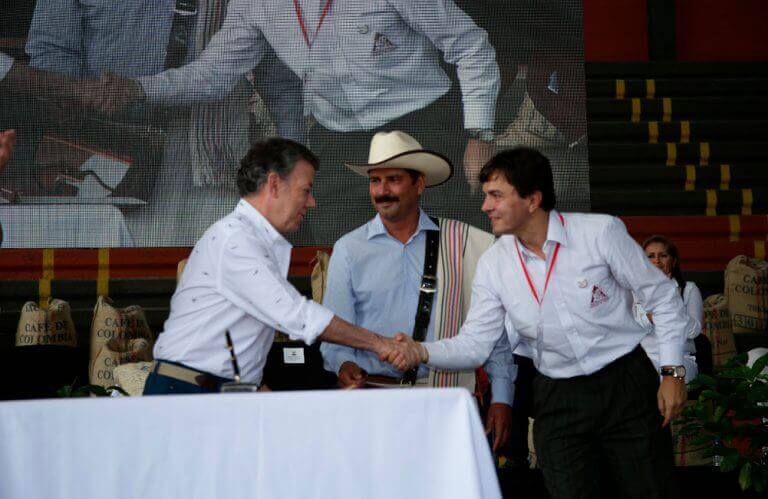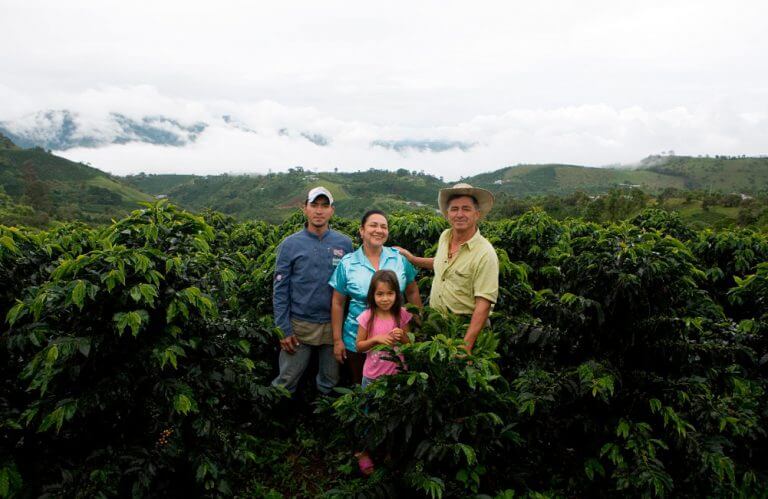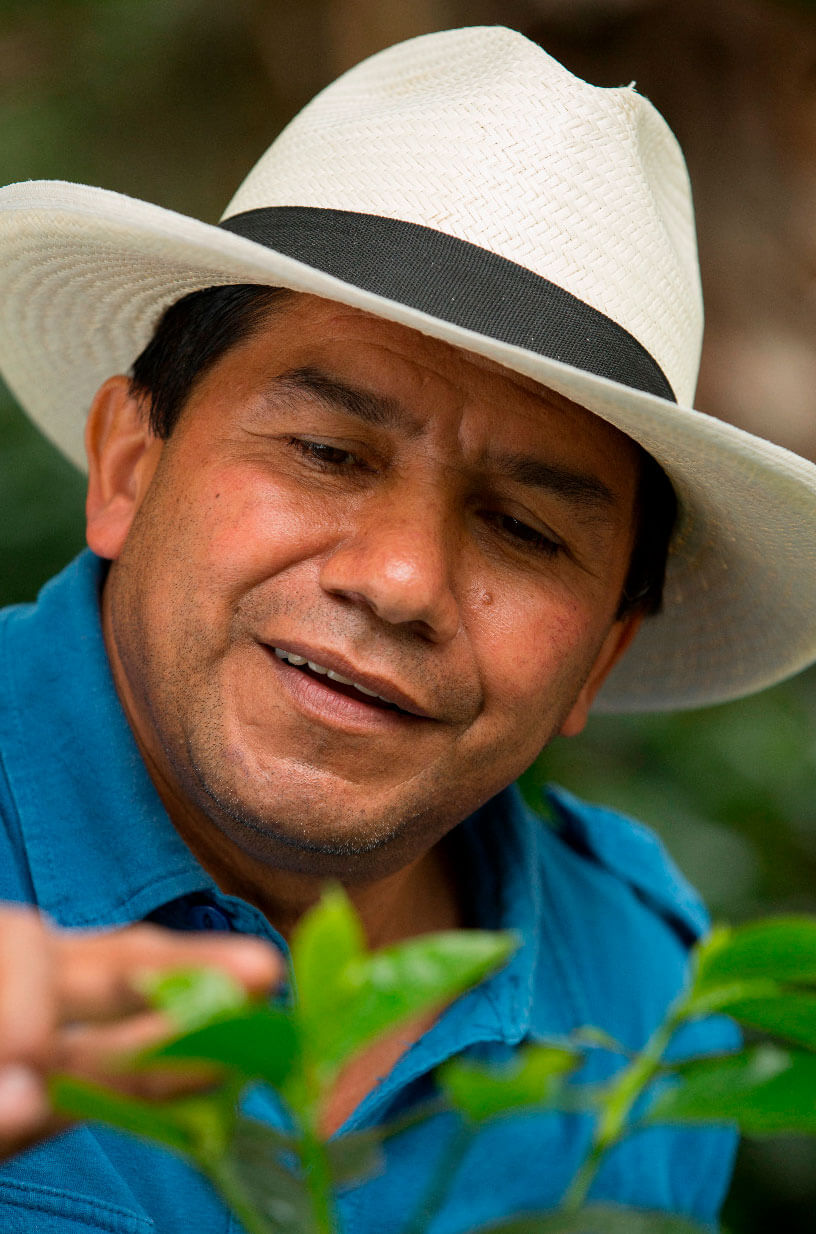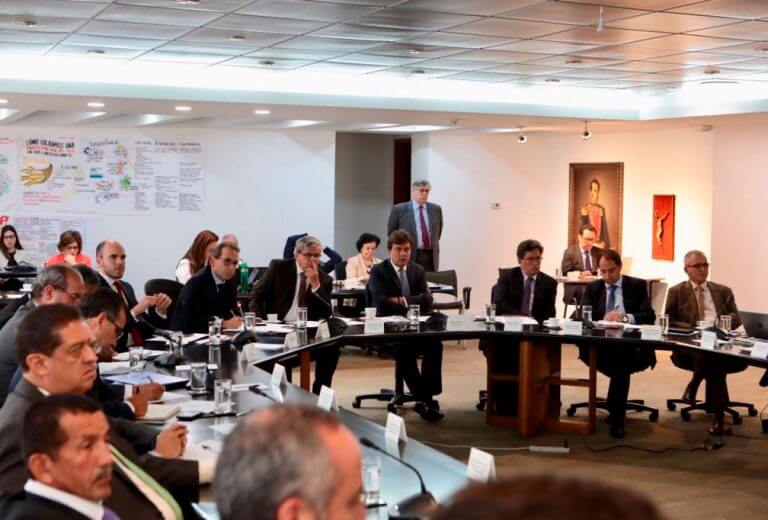
National Coffee Fund

What is the FoNC?
It is a parafiscal account, made up of monies considered public, which draws mainly on the coffee contribution paid for each pound of exported coffee (green, roasted, soluble or in extract).
Why does the Federation of Coffee Growers administer the FoNC?
For being the legitimate representative of the coffee growers, for its democratic structure, its effectiveness and transparency in the management of resources, the Colombian Government since 1928 and every 10 years has signed a new contract with the National Federation of Coffee Growers to be the one to administer the National Coffee Fund (FoNC).
What is the coffee contribution?
It is the contribution to the National Coffee Fund that producers make to obtain collective benefits. This contribution is 6 cents (US ¢) for each pound of green coffee exported, US ¢ 1.08 for roasted coffee, US ¢ 0.48 for soluble coffee and US ¢ 0.36 for coffee extract.

When was the FoNC created?
As a special account, the FoNC was created on November 22, 1940 through Decree 2078, and its management and administration by the FNC was formalized through a contract signed with the Government in December of that year. It is good to keep in mind that the history of coffee parafiscality dates back to 1927, when a tax on exports of special destination coffee was established, since the resources collected could only be used for the benefit of Colombian coffee growing and promotion and grain marketing inside and outside the country, among other activities. From that same year the legislature entrusted to the FNC the administration, collection and investment of the resources of the lien, whose punctual regulation was formalized by means of a contract signed in April 1928, with the possibility of being extended for periods of 10 years.

How many management contracts have been signed since then?
Se han suscrito, incluido el actual, 10 contratos desde 1928, sin contar algunos otro si o contratos para otros efectos que en el pasado se firmaron entre la Federación y el Gobierno.
El actual contrato permitirá a la FNC trabajar por el fortalecimiento del Fondo, cuyo objetivo primordial es proteger y maximizar el ingreso de las más de 500 mil familias caficultoras colombianas.
What is the FoNC for?
The Fund’s priority objective is to contribute to maximizing the income of the coffee producer and must comply with the objectives set forth in the applicable regulations consisting in promoting and fostering efficient, sustainable and globally competitive coffee growing.
The FoNC is the main source of financing for public goods and services that benefit coffee farmers themselves, such as:
The purchase guarantee.
Scientific research and technological development carried out by institutions such as the National Coffee Research Center (Cenicafé)..
The technical assistance provided by the Extension Service (main knowledge transmission vehicle, the “army” of yellow shirts).
.The marketing and marketing efforts that have contributed to provide added value to coffee and position Colombian coffee as the best soft washed coffee in the world, among others.
What does the FNC commit to signing the administration contract?
To administer and execute the resources of the National Coffee Fund for Colombian coffee growing and with high standards of transparency, efficiency and effectiveness.

What elements are taken from previous contracts?

The financing of the provision of the aforementioned public goods and services, which benefit all coffee growers, and the cooperative network remains one of the means to exercise the purchase guarantee.The important work of the Coffee Growers Committees to contribute to the development and well-being of coffee areas is recognized, continuing their role in the construction of economic and social infrastructure works in coffee areas, as well as with the recognition of management costs and administration of regional investment projects (in education, social welfare and community infrastructure), allowing to leverage resources from different origins in the coffee zone.The importance of research (through Cenicafé, for example) and technical assistance to coffee growers (the Extension Service), as well as the government and contract administration bodies, is reinforced, namely: the National Committee of Coffee growers and budget, marketing and intellectual property commissions.The participation of the Ministries of Finance, Agriculture, Foreign Trade and the National Planning Department (DNP) in the senior management of the FoNC is preserved, as well as the collaboration of an advisor for coffee matters.The obligations of commercialization derived from the norms still in force of Law 9 of 1991 are conserved for the National Committee of Coffee Growers: registration of exporters, qualities of coffee, marketing policy and external promotion, adopt annual sales programs, cost authorization, rates and commissions of coffee marketing services associated with the FoNC.The protection of FoNC resources remains a priority, ensuring the relevance of new investments and avoiding debt that endangers its resources.The healthy prohibition of the FNC assuming the hiring necessary to carry out these functions is maintained, so that no employees are charged to the FoNC.
What changes or modifications does the new contract incorporate?
The new contract (as it has done throughout its history) conforms to the new applicable legislation and eliminates timeless vestiges and realities already repealed, such as provisions on coffee retention, quota agreements and some unnecessary controls today in a related globalized world With the export of coffee.
In the case of the management of parafiscal resources, the application of disciplinary and fiscal provisions is recognized, adjusting deadlines for disabilities and incompatibilities for the different actors to the terms of the Anti-Corruption Statute (Law 1474 of 2011).
It incorporates the principles of planning, efficiency, effectiveness, economy, transparency, responsibility, objective selection, due process and publicity in the execution of FoNC resources.
Good Governance principles are also introduced, with which the FNC must issue a Code of Ethics and Good Governance that collects and disseminates the principles, values, policies and ethical guidelines related to:
- The governance that guarantees to have a representative and democratic organization in search of profitability and sustainability of the coffee grower.
- Management control for members, workers and authorities, as well as timely and effective accountability for the FNC itself, its workers and management and representation bodies.
- Ethical principles, understood as the basic beliefs and ethical values on which the correct form of internal and external relations and the administration and good use of coffee resources are built.
And in general, all those who contribute to raising the standards of transparency in their management as a representative entity of the legitimated coffee guild to manage the resources of the FoNC.
What is the maximum FoNC address instance?
The National Coffee Growers Committee, composed of the highest coffee representatives and representatives of the national Government. This management body also acts as a coordinating body for the country’s coffee policy.

What consideration does the FNC receive for administering the FoNC?
The Government authorized that with resources of the FoNC, the Federation receive as consideration an annual sum that does not exceed the equivalent of 3 cents per pound of the total exports of the country.
It should be noted that this is a maximum limit, which does not mean that this is what is charged. The current ceiling is 2.5%, a rate that was in force for 10 years and which, adjusted for inflation, today corresponds to the referred 3%.
In those 10 years the cap was not charged, it was not adjusted to 3% and the FNC assumed the full impact of the exchange rate.

Who monitors FoNC management?
The Comptroller General of the Republic (CGR) through the methods, systems and procedures of fiscal control and investments and transfers provided by law, as well as for other state assets and funds administered by the FNC.
Since 1940 the fiscal control of the FoNC has been guided by the accounting standards established by the CGR. The FoNC surveillance was exercised in the first instance by the Banking Superintendence and since 1972 directly by the same CGR through demanding annual audits.
What similar mechanisms has FoNC inspired?
Based on the trajectory and important achievements of the FoNC, the General Law of Agricultural and Fisheries Development (Law 101 of 1993) adopted parafiscal funds as a mechanism to promote the development of other agricultural sectors, understood as contributions that the law imposes on a sector for your own benefit.
This law established as objectives of these funds research and technology transfer, technical assistance, marketing, export promotion, promotion of consumption and protection of producers’ income against abnormal price variations.
